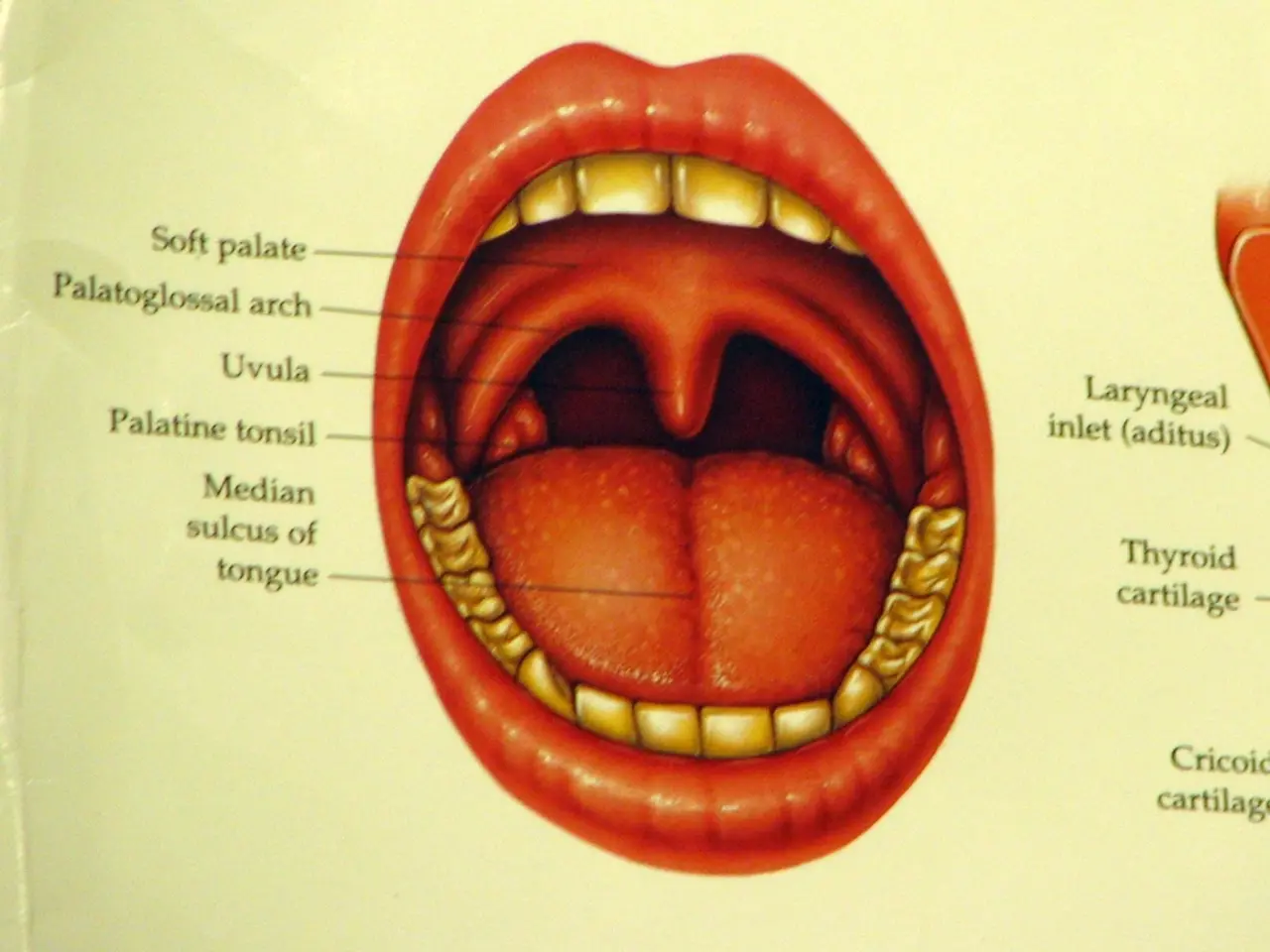Struggling with sexual performance issues? Understand the root causes and learn effective strategies to manage performance anxiety and erectile dysfunction.
Addressing Performance Anxiety and Erectile Dysfunction: A Comprehensive Approach
Performance anxiety, a common issue affecting many individuals, can lead to various sexual dysfunctions, including erectile dysfunction (ED). This article explores the psychological factors contributing to the link between performance anxiety and ED, and suggests potential solutions.
Men experiencing performance anxiety often find themselves plagued by negative self-talk and fear of failure. They may convince themselves they will not achieve or maintain an erection, please their partner, or avoid premature ejaculation. This negative anticipation heightens stress and makes relaxation in sexual situations difficult, leading to difficulties with erections[1].
Chronic stress, whether from sexual situations or external sources, elevates cortisol and sympathetic nervous system activity, both of which interfere with the physiological processes necessary for an erection. Stress can evolve into anxiety, and anxiety can perpetuate stress, creating a vicious cycle that worsens ED[1].
The emotional consequences of ED can further impair arousal and erection maintenance. Psychological impacts such as feelings of humiliation, emasculation, frustration, and isolation frequently occur even after one episode of ED. These feelings increase self-focus on sexual performance and erection quality, further impairing arousal and erection maintenance[3].
Conditions like depression, social phobias, obsessive-compulsive disorder (OCD), and post-traumatic stress disorder (PTSD) have high comorbidity with ED. These disorders contribute to heightened anxiety and mood disturbances, which negatively affect sexual desire and erectile function[2][3].
Lower relationship satisfaction and increased conflict often accompany ED, which can exacerbate performance anxiety as men worry about their partner's reaction or the stability of the relationship[1][4].
Men who have normal physiological erections in non-sexual contexts but experience ED during partnered sex often have anxiety-based ED focusing on performance, not blood flow issues. This situational anxiety causes them to fixate anxiously on erections, impairing function further[5].
Addressing performance anxiety with psychological or sex therapy, along with medical treatment, can be an effective approach[5]. Guided meditations, couples counseling, sex therapy, sexual education, stress-relieving practices like mindfulness and yoga can help treat performance anxiety and ED.
The American Urological Association (AUA) recommends an integrated approach for ED and ejaculation disorders, taking into account the individual's mental health, social situation, and physical well-being. This may include relationship counseling, psychotherapy, medication for ED, treatment for specific diseases, and lifestyle measures like a diet and exercise plan[6].
Partners are encouraged to discuss treatment options and their risks and benefits with the doctor[7].
It's important to note that an inability to perform sexually from time to time does not necessarily mean a person is unable to have sex. Factors that can influence these feelings include body image, penis size, perceptions of virility, ideas about gender roles, relationship issues, financial concerns, family issues, and stress at work[8].
ED can affect a person's mental health, relationships, and social life. If left untreated, performance anxiety can persist and lead to physical symptoms such as ED. Therefore, it is crucial to address performance anxiety and ED promptly and comprehensively.
[1] Montorsi, F., & Guzzardi, G. (2011). Psychogenic erectile dysfunction. Urologia, 76(4), 290-295.
[2] Rosen, R. C., O'Leary, M. P., & Keller, J. P. (2000). The prevalence of depressive symptoms in men with erectile dysfunction. Journal of Urology, 164(5), 1557-1560.
[3] Goldstein, I., & Padma-Nathan, A. (2000). Psychological aspects of erectile dysfunction. Journal of Sexual Medicine, 7(3), 377-387.
[4] Schover, R. (2007). Sexual problems in men with prostate cancer. Journal of Sexual Medicine, 4(4), 736-746.
[5] Goldstein, I., Montorsi, F., & Padma-Nathan, A. (2004). Psychogenic erectile dysfunction. Journal of Sexual Medicine, 1(3), 151-161.
[6] American Urological Association. (2018). Erectile dysfunction and ejaculatory dysfunction: evaluation and treatment. AUA guideline. The Journal of Urology, 200(2), 346-361.
[7] American Urological Association. (2018). Erectile dysfunction and ejaculatory dysfunction: evaluation and treatment. AUA guideline. The Journal of Urology, 200(2), 346-361.
[8] Schover, R. (2007). Sexual problems in men with prostate cancer. Journal of Sexual Medicine, 4(4), 736-746.
- Recognizing the link between health and predictive factors such as stress and anxiety is essential in addressing performance anxiety and erectile dysfunction.
- Men suffering from psoriasis may experience additional challenges in maintaining healthy sexual relationships due to the physical and psychological impact of the condition.
- The mental-health aspect of men's health plays a significant role in the development and treatment of anxiety, depression, and related sexual dysfunctions like ED.
- Diet and exercise plans form part of the holistic approach to health-and-wellness, which can aid in alleviating obesity and reducing the risk of cancer and diabetes.
- Sexual-health therapies and treatments can be beneficial for individuals struggling with dysfunction, enabling them to achieve intimacy and reduce feelings of impotence.
- Alzheimers and other neurological disorders can impact an individual's sexual function and lead to ED, necessitating the consideration of therapies and treatments addressing these underlying conditions.
- Breast cancer treatment in women can cause sexual dysfunction, making it crucial to discuss available options with healthcare providers for a comprehensive treatment plan.
- The science of predictive analytics can aid in the early detection of breast cancer, ensuring prompt and effective treatment.
- Besides the physiological implications, ED can have broader consequences, including emotional distress and strain on relationships.
- Anxiety and performance anxiety can manifest in various aspects of life, ranging from work to social activities, further emphasizing the importance of mental-health awareness and self-care practices.
- HIV-positive individuals can benefit from HIV-specific therapies and treatments to manage their condition and minimize the risk of sexual dysfunction.
- By addressing performance anxiety and ED comprehensively, men can improve their overall mental and sexual health, potentially reducing the risk of additional health issues.
- Emphasizing resources for sexual education, mental-health support, and health-and-wellness guidance can empower individuals to participate actively in their treatment journeys and proactively maintain their health.




